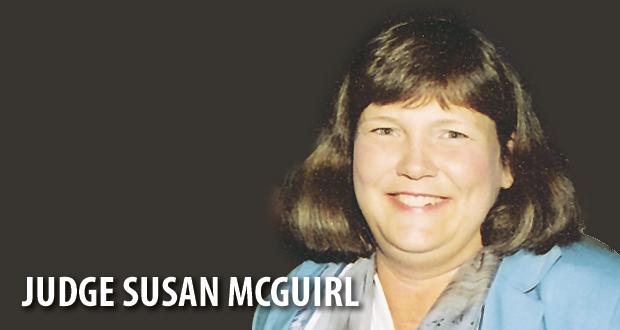 A criminal investigator for Rhode Island’s Department of Environmental Management could sue the state under the whistleblower statute for actions taken against him after he reported his suspicions about possible misconduct by higher-ranking officials, a Superior Court judge has decided.
A criminal investigator for Rhode Island’s Department of Environmental Management could sue the state under the whistleblower statute for actions taken against him after he reported his suspicions about possible misconduct by higher-ranking officials, a Superior Court judge has decided.
The defendant DEM argued that it was entitled to summary judgment because the Rhode Island State Police did not find any indication of illegality in the plaintiff employee’s allegations.
“Rhode Island, however, has never held that the reported conduct must be an actual violation of the law,” Judge Susan E. McGuirl wrote. “[T]his Court concludes that there exists a question of fact as to whether Plaintiff knew or reasonably believed that Defendant was about to violate a law or rule of the state.”
The 12-page decision is Thatcher v. Department of Environmental Management.
Sonja L. Deyoe of Providence and Stephen M. Rappoport of East Providence represented the plaintiff whistleblower. Warwick’s Bruce E. Vealey and Providence lawyer Sue Ellen Dunn defended DEM.
Suspicions reported
Plaintiff David N. Thatcher Sr. worked at DEM’s Office of Criminal Investigation, or OCI.
On May 1, 2006, the plaintiff informed Kurt Schatz, chief of OCI, of possible ethics violations stemming from a personal relationship Schatz had had with Darlene Bunning-Chapdelaine, who worked as a consultant for Patriot Cos. In addition to that alleged relationship, the plaintiff was also concerned about perceived relationships between the principals of Patriot Cos. and Matthew Patterson, the deputy chief of OCI, given rumors that he intended to begin working for Patriot.
The next day Schatz requested that the plaintiff prepare a memorandum detailing his allegations.
In his memo, the plaintiff reported that principal environmental scientist James Ashton, from DEM’s Office of Compliance and Inspection Solid Waste Section, informed him on April 26, 2006, of a telephone call he had received from Patterson.
Patterson allegedly had inquired into why DEM had conducted an inspection at a Patriot facility in Johnston. The plaintiff stated in the memo that “Mr. Ashton gave [plaintiff] the impression that this telephone call from retired Deputy Chief Patterson was inappropriate” because of rumors that Patterson would soon be employed by Patriot Disposal.
On May 5, Schatz wrote a memo to DEM Director Michael Sullivan explaining his concern regarding the plaintiff continuing to work as a criminal investigator. Schatz stated that, to his knowledge, Patterson had always acted with “utmost professionalism” and that no evidence had been found to support the plaintiff’s allegations.
According to Schatz’s memo, the sources that the plaintiff relied on denied knowledge of unethical or suspicious behavior. Schatz also wrote: “I do not pretend to be a psychiatrist, but based on my experience and his behavior in the last few days, I have a responsibility to advise you that I believe that [plaintiff] is making very poor decisions and using poor judgment in the performances of his duties.”
Schatz recommended that the plaintiff be temporarily removed from his position. Following the recommendation, DEM notified the plaintiff that he would be required to undergo a mandatory “fitness for return to duty” evaluation in order to return to work.
The plaintiff subsequently filed a complaint against DEM and Sullivan, in his capacity as director, alleging violations of the Rhode Island Whistleblower Act and the Law Enforcement Officers’ Bill of Rights.
The following May, the plaintiff filed another complaint against DEM, Schatz, Deputy Chief Patterson and Sheriff Patricia Patterson, alleging slander. Specifically, the plaintiff claimed that Schatz disseminated information that the plaintiff was mentally imbalanced and that Deputy Chief Patterson and his wife, Patricia, made false accusations that the plaintiff allegedly threatened them in revenge for his coming forward with his concerns about Schatz and Deputy Chief Patterson’s possibly unethical activities on the job.
Reasonable belief
McGuirl found a question of fact as to whether the plaintiff knew or reasonably believed that Schatz and Deputy Chief Patterson were about to violate a law or rule of the state.
“Plaintiff alleges that he believed that Deputy Chief Patterson would violate [G.L.] §36-14-5, Rhode Island’s Code of Ethics for public officers and employees,” the judge noted. “Specifically, he wrote a memorandum to Chief Schatz explaining his concerns about Deputy Chief Patterson’s alleged relationships with the principals of Patriot Companies, which was being investigated by DEM.”
In addition, the plaintiff stated that he believed Schatz was violating the ethical code by engaging in a personal relationship with Chapdelaine, a contractor working for Patriot, and that there was a “shared sense of uneasiness” in the office as a result.
“In support of these allegations, Plaintiff submitted evidence of emails between Chief Schatz and Ms. Chapdelaine,” McGuirl said. “He also submitted a deposition transcript of Deputy Chief Patterson, who stated that he spoke with Larry Mouradjian, DEM’s Associate Director, about an alleged relationship between Chief Schatz and Ms. Chapdelaine and that Joseph Vinagro, the owner of the Patriot Companies, told Deputy Chief Patterson that he felt Chief Schatz and Ms. Chapdelaine were having inappropriate sexual relations.”
The defendant argued that if the plaintiff “reported conduct which was not actually illegal[,] he is not a whistleblower, even if he mistakenly believed that he was reporting illegal conduct.”
But McGuirl did not agree.
“Defendant’s argument that neither Chief Schatz nor Deputy Chief Patterson violated any state or federal laws is irrelevant because the issue is what Plaintiff reasonably believed,” she said. “An employee’s reasonable belief that a violation occurred or is about to occur, regardless of whether the violation actually violates a law, is sufficient to be protected by the whistleblower statute.”
 New England Biz Law Update
New England Biz Law Update
